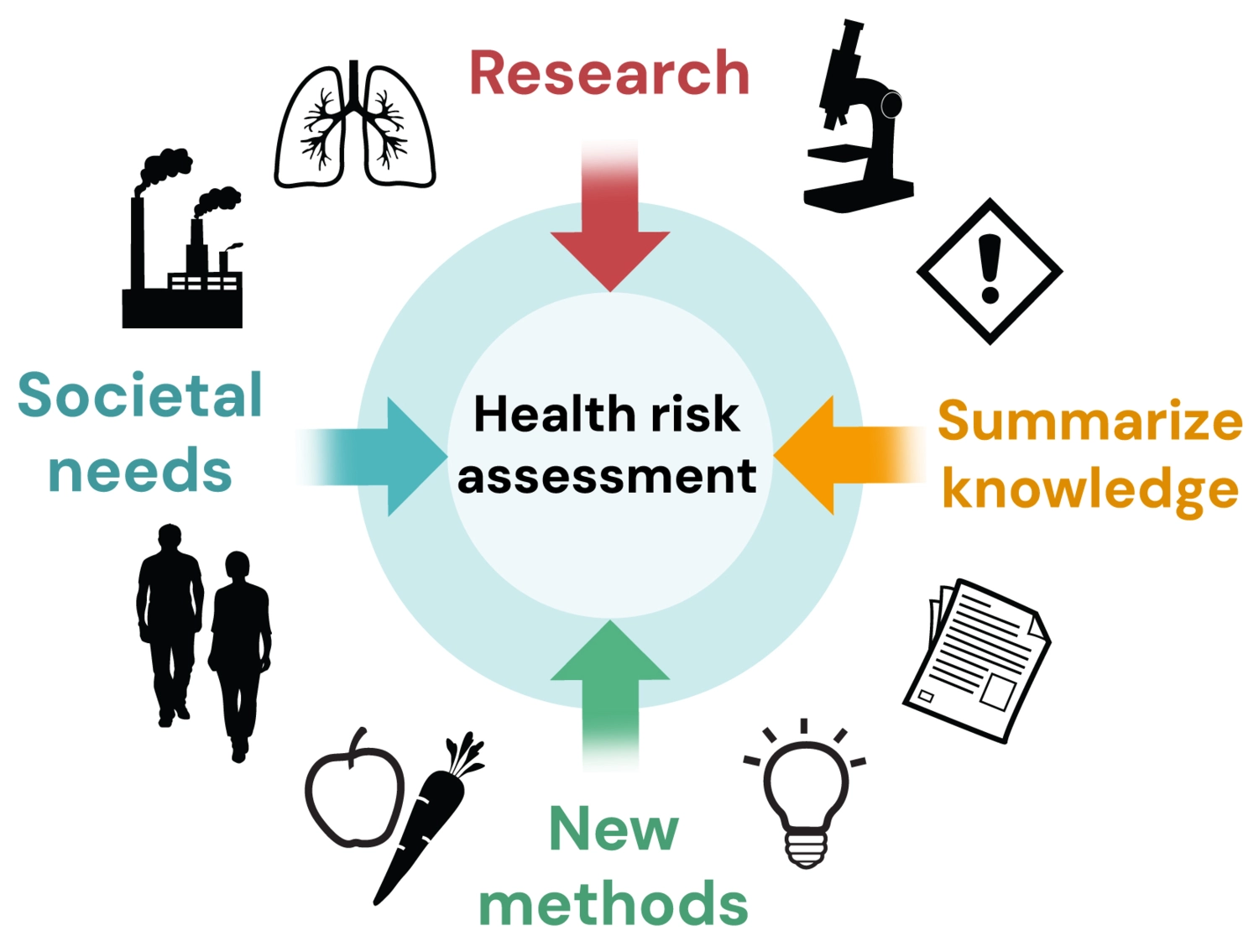Interaction between health risk assessment and research
Through broad and successful research, method development, and education, IMM has an important role as a national expert body in the field of environmental medicine. Research and health risk assessment are integrated: A strong scientific foundation is crucial for risk assessment, and likewise, a deep understanding of society's and authorities' needs forms the basis for useful research.

Research
The research at IMM is conducted in toxicology, epidemiology, physiology, and occupational medicine. We investigate how exposure to various environmental factors affects human health and how illness can be prevented. Studies encompass exposure in the general environment and via food and drinking water, as well as in workplaces, and in people’s homes. Research maps the impact of various environmental factors on common diseases such as allergies, cancer, diabetes, obesity, cardiovascular disease, obstructive lung diseases, and mental illnesses. An important focus is identifying particularly sensitive population groups.
Summarize knowledge
As risk assessment involves evaluating and summarizing all relevant scientific literature within a specific area, we don't solely rely on research conducted at IMM. Through systematic literature reviews and meta-analyses, the connection between environmental factors and health outcomes can be estimated. Such literature reviews also include assessing the quality of existing research data to avoid drawing conclusions based on inadequate evidence.
Development of new methods
At IMM, research is conducted on the development of risk assessment methodologies to meet current and future challenges. For example, we develop new ways to gather data for risk assessments and methods to describe mechanisms linking exposure to health effects, such as an Adverse Outcome Pathway (AOP). New methods for systematic literature reviews for risk assessment and integration of different types of data contribute to efficient use of available data. Another important area is epidemiological method development, aimed at strengthening the reliability of research results. We also work to increase the use of animal-free testing methods in assessing health risks.
The needs of society
In a time of significant challenges to create a socially, health-wise, environmentally, and economically sustainable society, collaboration between researchers, authorities, and decision-makers is a crucial key to success.
IMM's applied activities contribute to the design of effective policy measures, safer products, and workplaces, and increased public awareness of the environment's impact on health. Due to the assignment as an expert institute, IMM's researchers contribute to international expert groups, governmental investigations and in the development of various recommendations and limit values.
Several of IMM's research groups have close connections to healthcare. Thus, new research results also contribute to improved diagnosis and treatment of diseases related to environmental exposures. The knowledge is also used to inform and educate healthcare professionals about risks associated with environmental factors.
IMM is responsible for education within several different programs where we educate students concerning risk assessment methodology and associations between various environmental factors and health outcomes.
